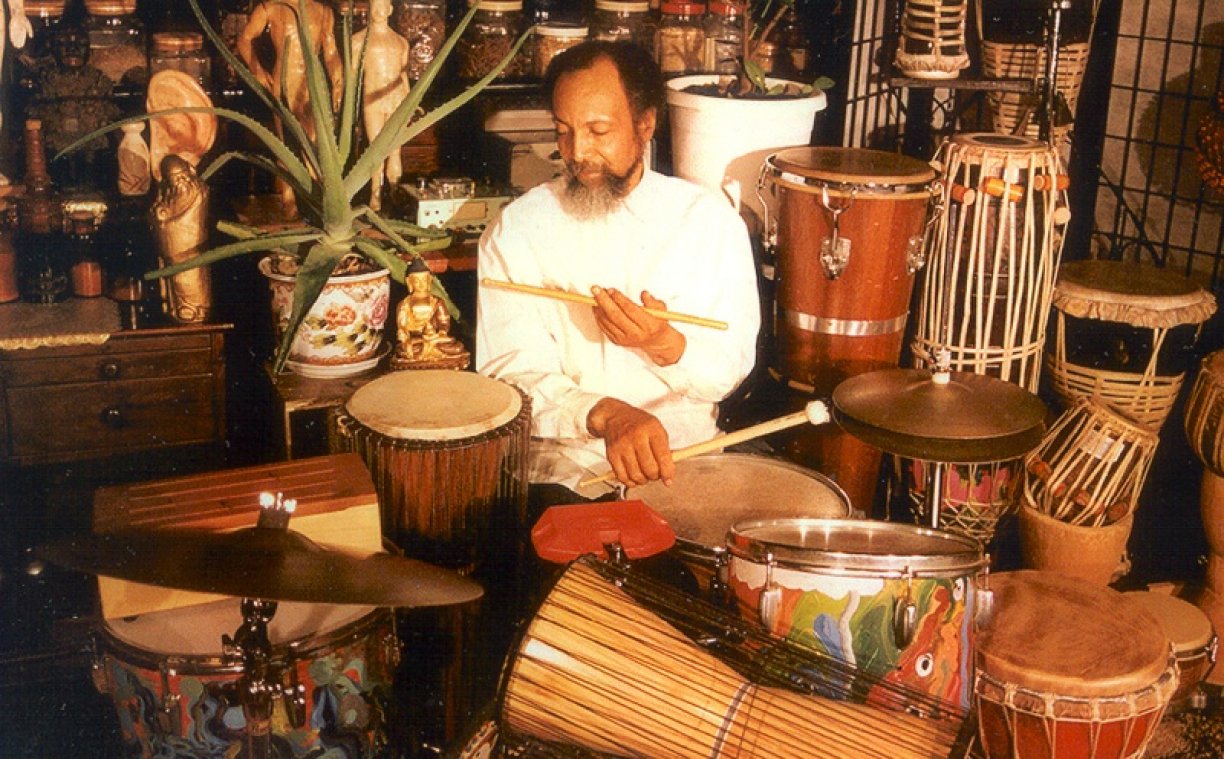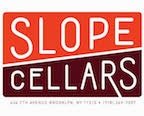Thursday, September 6th, ISSUE Project Room's 2018 Fall season opens at the First Unitarian Congregational Society in Brooklyn Heights with legendary experimental free jazz artist Milford Graves, performing alongside renowned multi-instrumentalist and ISSUE Art Advisory Board Member Shahzad Ismaily. The evening also features a performance by composer and artist Marina Rosenfeld, as well as a New York based improvising vocalist Charmaine Lee. Join as an ISSUE Project Room Member at any level and get a free ticket to the performance.
An icon of avant-garde jazz with kaleidoscopically varied interests, Milford Graves remains one of the most influential living figures in the evolution of the form. Born in South Jamaica, Queens, Graves has performed internationally since 1964, as a soloist and in ensembles with such legends as Albert Ayler, Giuseppi Logan and Sonny Sharrock. Affectionately known as “The Professor,” Graves’ interests include disparate enthusiasms in Chinese medicine and herbalism, acupuncture, martial arts, electronic sound, and biorhythm-based music -- all harmonizing as a complex cosmology that radically informs his playing, often liberating percussion from its traditional timekeeping role. Graves’ performance at ISSUE follows the release of Milford Graves Full Mantis, a new film made by Jake Meginsky, the Massachusetts musician who began assisting Graves with his archive in the 2000s, co-directed by Neil Young Cloaca.
Shahzad Ismaily’s multifaceted interests are no less diverse, himself acquiring a masters degree in biochemistry before becoming a self-taught composer and multi-instrumentalist. Equally comfortable across the electric and double bass, guitar, banjo, various woodwinds, percussion, synthesizers, and other electronics, Ismaily is known, in the words of the New Yorker, “as a sensitive and versatile sideman, whether he is playing drums with Marianne Faithfull, bass with Will Oldham, or guitar with Elvis Costello.” A serial collaborator with a distinctive instrumental presence, his dynamic collaborative energy and innumerable interests match with Graves’ own polymath sensibilities, summing up for what’s sure to be a striking improvisational encounter.
Renowned sound artist Marina Rosenfeld will present a new work drawing on her prolific history producing acetate test-pressing records, or dub plates, since the late 1990s. A pioneer of a relational kind of music composition that addresses the resonances -- social, situational and acoustic -- of sites in works of music and sound installation, Rosenfeld’s work resists assuming static form; rather, in the words of Tristan Shepherd written for BOMB Magazine, “it appears as glittering constellations of sounding objects, flickering images, choirs, and orchestras that foreground the social and performative entanglements of bodies, especially bodies making music.”
Improvising vocalist Charmaine Lee opens the evening, showcasing her unique style that tensely balances piercing, rapid-fire free improvisation with the sober austerity of Japanese onkyo. Often heavily amplifying the guttural manipulations of her otherwise unaffected voice, Lee approaches elements of ASMR, drone, jazz, and noise all sewn together into a musical language simultaneously lucid and severe.
Milford Graves is a percussionist, acupuncturist, herbalist, martial artist, programmer, and professor. In 1945 Graves started playing on some odd drums left at his parents’ house by a tenant (he still rarely plays with a kit). In 1964 he met the New York Art Quartet at Michael Snow’s loft for an impromptu rehearsal and they asked him to join. He famously held court five nights straight, three sets a night, with Albert Ayler at Slugs in 1967. On July 21st of that same year, he played at John Coltrane’s funeral, and Dizzy Gillespie, who couldn’t see the balcony where the band was, asked loudly, “Who’s on drums?” Mention his name to anyone who follows free jazz, and they know him from recordings like Albert Ayler’s Love Cry and Sonny Sharrock’s Black Woman, as well as his concerts with Paul Bley and Don Pullen. In 1972 he invented a martial art called Yara based on the movements of the Praying Mantis, African ritual dance, and Lindy Hop. In 2000 he won a Guggenheim Fellowship and began to study human heart vibrations to better understand music’s healing potential. He received the 2015 Doris Duke Foundation Impact Award. Graves is Professor Emeritus at Bennington College, where he taught for forty years. Many of his former students still visit him in his basement office and studio in Jamaica, Queens, a space where his grandparents once had a community social club.
Shahzad Ismaily was born to Pakistani immigrant parents and grew up in a wholly bicultural household. While he holds a masters degree in biochemistry from Arizona State University, he is a largely self-taught composer and musician, having mastered the electric and double bass, guitar, banjo, accordion, flute, drums, various percussion instruments and various analog synthesizers and drum machines. Ismaily has recorded or performed with an incredibly diverse assemblage of musicians, including Laurie Anderson and Lou Reed, Tom Waits, Jolie Holland, Laura Veirs, Bonnie Prince Billy, Faun Fables, Secret Chiefs 3, John Zorn, Elysian Fields, Shelley Hirsch, Niobe, Will Oldham, Nels Cline, Mike Doughty (of Soul Coughing), Graham Haynes, David Krakauer, Billy Martin (of Medeski Martin and Wood), Carla Kihlstedt’s Two Foot Yard, the Tin Hat Trio, Raz Mesinai and Burnt Sugar. He has also composed regularly for dance and theater, including for Min Tanaka, the Frankfurt Ballet and the East River Commedia. Recently he composed the score for the critically acclaimed movie Frozen River, which won the Grand Jury Prize at the 2008 Sundance Film Festival. He was also an Artist in Residence at the Headlands Center for the Arts in San Francisco, CA in 2008. Currently based in New York , Ismaily has studied music extensively in Pakistan, India, Turkey, Mexico, Santiago, Japan, Indonesia, Morocco and Iceland.
Marina Rosenfeld was born in New York and has been based there since 1999. A composer and artist working across disciplines, her work has been at the forefront of experimental practices in sound and performance since the 1990s, when she mounted her first all-female electric-guitar ensembles under the name Sheer Frost Orchestra. Her works are known for a complex integration of composition and improvisation as the basis for sculptural interventions into monumental and/or resonant spaces, and a conceptual approach to the deployment of loudspeakers, bodies and musical forms. She has had solo presentations in recent years by institutions including the Museum of Modern Art and the Park Avenue Armory in New York; the Whitney, Montreal, Liverpool and PERFORMA biennials; and the Holland, Wien Modern, Borealis and Ultima festivals, among many others. Recent projects include commissioned works for documenta 14 radio and Donaueschinger Musiktage, and solo exhibitions at Portikus (Frankfurt, Germany) and the Bard Center for Curatorial Studies. Rosenfeld has also performed as an experimental turntablist since the late 1990s, creating improvised music with a distinctive palette of hand-crafted dub plates. Her collaborators have included Christian Marclay, George Lewis, Okkyung Lee, and Annette Henry aka Warrior Queen, among many others.
Charmaine Lee is a New York-based vocalist from Sydney, Australia. Her work is predominantly improvised, favoring a uniquely personal approach to vocal expression concerned with spontaneity, playfulness, and risk-taking. Beyond extended vocal technique, Charmaine uses amplification, electroacoustic feedback, and microphones to augment and distort the human voice. She has performed with leading improvisers Nate Wooley, id m theft able, and Joe Morris, and maintains ongoing collaborations with contemporaries Lester St. Louis, Conrad Tao, Zach Rowden, and Leila Bordreuil. She has performed at venues such as the Met Breuer, Roulette, the Stone, and Experimental Sound Studios (Chicago). As a composer, Charmaine has been commissioned by the Wet Ink Ensemble (2018), and has a forthcoming commission with Spektral Quartet (2018).



